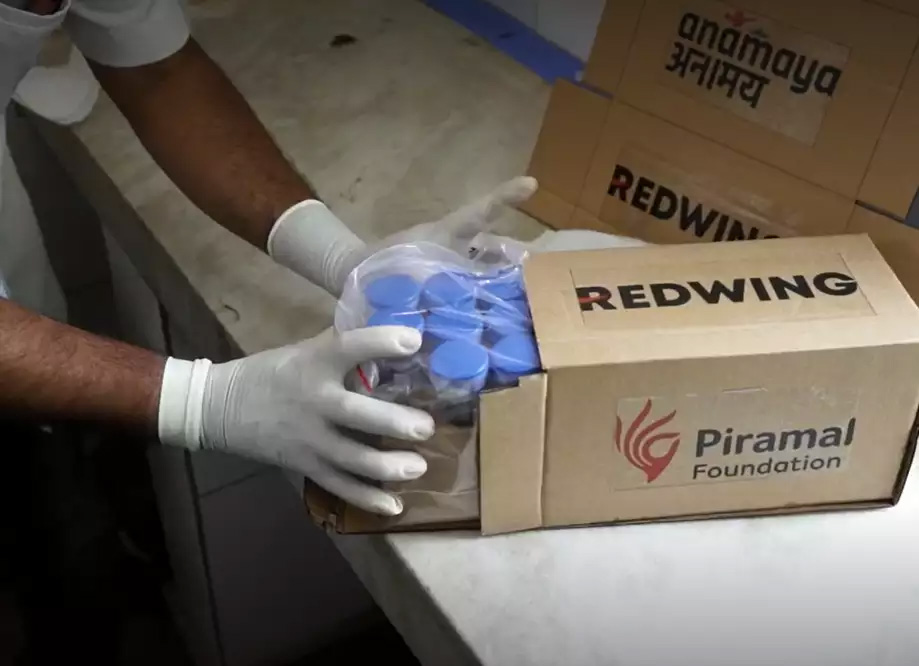The customised drones had the capacity to transfer two to three kilograms of weight. The drones collected 34 samples from two villages during one flight each. The drones covered a distance of 36 kilometres of remote, hilly, uneven, and forest-covered terrain, which usually takes 55 minutes by road in 20 minutes

Bhubaneshwar: In line with the Government of India’s ambitious goal to end tuberculosis (TB) by the year 2025, Anamaya, the Tribal Health Collaborative (THC) , an initiative of the Piramal Foundation, piloted automated drones for faster transportation of sputum samples for screening and diagnosis in hard-toreach areas of Kalahandi district, Odisha.
The pilot, implemented in March 2022 in collaboration with Redwing Labs, saw a significant time reduction in covering the distance to the diagnostic centre. Anamaya worked closely with the district collector, Chief District Medical Officer (CDMO), civil surgeon, frontline workers, and the staff of the National Tuberculosis Elimination Programme (NTEP) to ensure seamless operations.
Early detection of TB being a critical step in prevention and treatment, the pilot project implemented in three blocks—Kesinga, Narla, and Bhawanipatna—of Kalahandi district will explore ways of accelerating the pace of transportation to enable early diagnosis. With the deployment of drones, a distance of 36 kilometres of remote, hilly, uneven, and forest-covered terrain, which usually takes 55 minutes by road, is said to be covered in half the time, around 20 minutes.
The Redwing team which customised the drones to suit the specific needs of this pilot and ensured the operational efficiency of the drones used a capacity to transfer two to three kilogrammes of weight. In total, 34 samples were collected from two villages during one flight each.
This article was first published on April 21, 2022, on Economic Times





